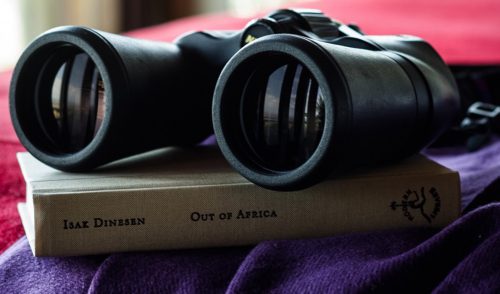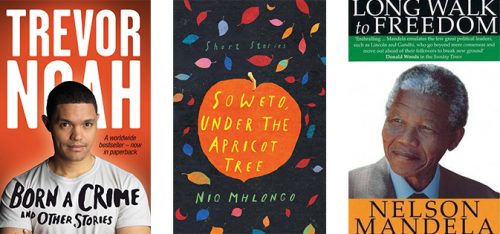
2020. Annus horribilis. A year never to be forgotten when international travel limped to a halt. But for those with a literary inclination, simply take a few steps towards a bookshelf, blow a puff of dust from the covers, and discover that armchair travel across Africa is a magnificent adventure all of its own.
The first stop on our book tour is Nairobi. The daily challenges and lived experience of an imperially infused Africa defines much of the continent’s literature. It’s Our Turn to Eat has all the elements of a Kenyan political thriller in a gripping account of a whistle blower, while one of Kenya’s best loved novelists Ngugi wa Thiong’o’s lauded works A Grain of Wheat and In the House of the Interpreter, give framework to the daily existence of Kenyans and their struggle for independence.

In Rules of the Wild, perhaps the ‘White Mischief’ of the 90s, author Fransesca Marciano, describes the heart-stopping magnificence of the vast Kenyan wilderness. The author sensitively explores race, class and social dynamics of the Nairobi ex-pat playground, while tipping her hat to others like Isak Dinesen and Beryl Markham who explored these themes decades before her.

No bibliophile worth their salt can claim an interest in African literature without travelling deep into the heart of it all, Joseph Conrad’s Heart of Darkness. This 1899 masterpiece has been studied the world over leaving lasting impressions on young readers. Problematic in parts because of his portrayal of Congolese villagers, Conrad was never-the-less critical of the entitlement of imperialism. Fast-forward a century or so and we find ourselves in the same region, where Barbara Kingsoliver set her acclaimed novel, The Poisonwood Bible. Grappling with similar themes of Western entitlement, fanatical religon and independence from colonialism, this multilayered epic spans three decades and is impossible to put down.

Nigeria, one of Africa’s literary bedrocks has birthed a impressive scope of authors and a pit-stop here reveals a treasure trove of reading. Ben Okri’s The Famished Road and Chimamanda Ngozi Adichie’s novels Americanah and Half of a Yellow Sun, pay homage to this. When Things Fall Apart, Chinua Achebe’s timeless debut novel, finds new and modern relevance with each reading. Travelling further south down the continent, we find ourselves in Zimbabwe where Alexandra Fuller’s beautifully written memoirs are heart wrenching in their rawness – my favourite is Cocktail Hour Under the Tree of Forgetfulness. Peter Godwin’s Mukiwa speaks to a carefree childhood in what was then Rhodesia, and his political awakening to the injustices of colonial rule. Shortlisted for the Man Booker Prize, We Need New Names by NoViolet Bulawayo is surely one of Zimbabwe’s finest coming-of-age novels set between the author’s home country and America.

Down on the tip of Africa, Olive Schriener’s 1883 Story of An African Farm has been recognised as one of South Africa’s earliest feminist works, while Nadine Gordimer made a name for herself as one of the country’s most relevant and prolific writers. Her works explore social, moral and racial issues within the apartheid framework, as do many others from that era, notably Zakes Mda’s Ways of Dying, Riaan Malan’s My Traitor’s Heart, Bryce Courtenay’s The Power of One, Alan Paton’s beautiful Cry the Beloved Country and Andre Brink’s A Dry White Season. In their own way, each of these novels brings into sharp focus the complexities of South African society and the injustices of the apartheid regime.

Not all of Africa’s writing is of the “misery memory” genre however, and more recent publications like Trevor Noah’s hiliarious and poignant Born A Crime and Niq Mhlongo’s Soweto Under the Apricot Tree speak to a flavour of African writers not devastated by their past but rather defined by it, all the while forging a new path of what it means to be African. No mention of South African literature is complete without including Nelson Mandela’s opus Long Walk to Freedom – a memoir impeccably narrated by Michael Boatman (all 28 hours of it) if you prefer the audiobook form of literary travel.
Impossible to delve deeper into the literary meander of African writing in a mere blog post, when it comes to reading the continent, as with travelling it, there never seems to be enough time to discover every destination. But now is a fine time to start in preparation for your next African adventure.
Filed under: East Africa Travel
Subscribe for Weekly Stories
Comments (0):

Weddings in the Mara